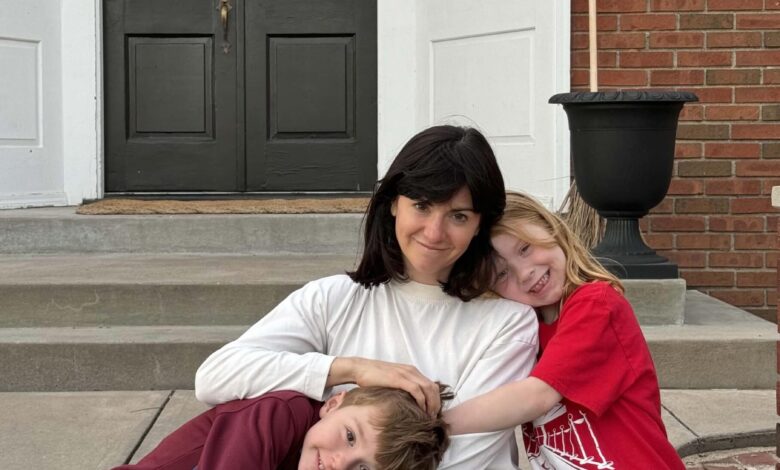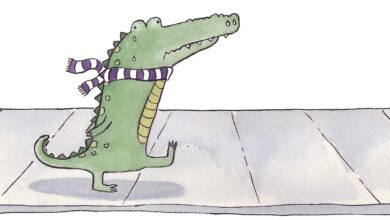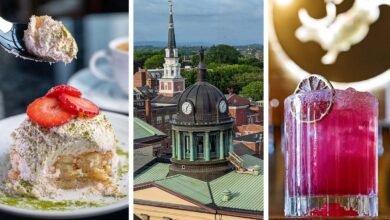My 2024 in Review: A Year of Simplicity, Growth, and New Beginnings | Wit & Delight


Two weeks after I hit publish on my 2023 recap last January, everything felt on the brink of falling apart.
I could feel that the balance of my life—work, personal life, marriage, and my relationship with all of it—had been teetering on edge for a long, long time. However, I thought that if I acknowledged how I truly felt about it all, the delicate balance of my life would lose its shape, never to be reconstituted.
We usually don’t face this circumstance unless there isn’t another option. It sits so profoundly in the dark that there isn’t a map. But we feel the threat lurking. Then something happens that turns the lights on, and there it is. We don’t always like what we see.
Nothing particularly eventful happened last year. But I became “real”—real in the way we can only be when we finally allow our whole selves to be witnessed.
I am only just beginning to understand what it means to be there for myself. Only beginning to take accountability for my reality.
If I can tell you one thing, it’s that the things we fear facing the most are what we need to run toward. The truth really does set you free.
Read my entire 2024 year in review below.
January 2024
The new year begins in earnest. We do January things even though it’s a balmy 30 degrees and not a snowflake clings to the ground. We clean out the house and make way for New Year’s intentions. We dance and drink martinis at Mancini’s. I host friends for roast lamb and cabbage and try to ignore the feeling of dread that follows me to my desk each morning.
I sit at my computer. I wait to feel “good” about my career. I look at finances, which have been difficult to rightsize since laying the team off last June. There are tax bills, summer camps, and unexpected home issues that need to be paid for. Joe and I have always shared a joint bank account, but I remain in charge of the budget and big-picture view of the state of it all. I feel alone. I begin to daydream about selling everything and moving to a small cabin up north. On a beach. Anywhere but here.
I go to Carlsbad with some girlfriends and forget about my troubles for 36 hours. I watch Past Lives on the way home and cry in public.
When I arrive home, the tipping point reveals itself: Joe decides to leave his job abruptly. His toxic work environment has become impossible.
It is the right thing to do. How it all went down will take me a long time to get over. I am angry. Very angry. And empathic. I agree with his decision wholeheartedly. I hold the two truths close to my heart and then feel an iciness cover everything. The show must go on, and bills are on their way.
I cut my bangs into the style of a French assassin. I feel bulletproof. I work and make pot roast and work more. I feel alive with purpose again. I am high on the feeling of being chased by the thought of financial ruin.
I sign three months’ worth of business in a week. Maybe this is just how it has to be to feel like myself again, to feel in control and capable. I am so afraid of losing everything that I feel nothing at all.
I have recurring nightmares. I walk for hours to calm down. I open up to my friend about my anger and guilt for being angry. I feel less alone in the presence of someone who sees me. I wonder if I can see myself.

February 2024
I paint basement walls and feel sufficiently distracted to sustain a rosy exterior. I take on some design consulting work. I get dressed. I blow dry my hair and wear makeup. I change things up and start wearing silver jewelry. My jeans are now wide below the knee.
It’s warm enough to wear fall jackets, and birds are chirping, which feels dystopian and haunting. I am wearing ballet flats and no socks and feel sick to my stomach.
Bennett lands in the hospital with acute asthma following a cold. She stays there for three days. Joe and I switch shifts. This is the first time he has taken her in, not me. I feel impotent and useless. I hear his fear on the other end of the phone. I hear the hours he did not sleep.
Joe tells me he has a job interview lined up in a new industry—a 180-degree pivot. He had not told me he was considering this, and I feel left out and also excited and hopeful. I find myself waiting for the other shoe to drop. I find it hard to access warmth and keep my icy exterior in place. I keep my worst assumptions to myself.
The worst does not happen. Joe is employed again by March.
March 2024
I feel relief and the promise of new beginnings for Joe. I’m back in the therapist’s chair. The call is made in a fit of panic on a Saturday night in late March. August, puking for hours, and I, curled up in the fetal position in the basement, having a panic attack. On top of it, I threw my back out the day before and cannot roll over without significant pain. It feels like I’m about to go over the edge. Of what, I still can’t name.
Phobias are funny that way. I had stuffed it away and it came back larger than life, feeding itself on my emotional repression. They’re an outsized reaction to something harmless and like a spotlight, they shatter whatever illusion of calm, cool, and collected you had been maintaining.
The panic is larger than life. I’m not just panicking about uncontrollable puking events. I am worried the center will not hold.
The therapist I find via Google late on a Saturday night calls me within 30 minutes of my request. At 9 p.m. on a weekend, she is a light in the dark. There when I need someone the most.
I’ve seen her every week since. It’s the first relationship I’ve had in which I don’t feel like I’m trying to meet their expectations of me. She had already seen and heard me at my absolute most afraid, most uncomfortable, and most vulnerable. I had nothing to lose except pride, and I was also ready to toss that in the bin.
No one needs jackets. We play outside. I walk for miles. We book a last-minute short trip out to Joshua Tree. I make a cheese soufflé. I make a gigantic, family-style budino. I make braised short ribs. I figure out summer childcare and camp schedules, organize playdates, and scrub the fridge clean before stocking it with nourishing foods each Sunday. I teach my daughter to brush her hair before bed. She says that’s ridiculous because you must do it again in the morning.
I find a trinket box from Joe’s grandmother with this written on the side: “Gentle people with quiet ways. Plan living—simple days.”
I feel a tug at my heart. Quiet sounds like heaven.
April 2024
I start microdosing mushrooms and drinking less. A gaggle of wild turkeys camps in front of my house for a while, feathers splayed in a flashy swagger. I share a bowl of pasta with a friend before she gives birth to her second child. A stone shatters my windshield. Ice cream sundaes are a nighttime ritual. I read about Buddhism and read letters by Eleanor Roosevelt on living.
I feel the pressure valve release, and with it, I find myself crying a lot once again.
We eat dinner in the front yard while catching the sunset. We reconnect with old friends and buy plants in a fit of optimism on an unseasonably warm day. There is dim sum. Flip flops. Walks. Delight.
I write about awe, a secret door I found to transmute my yet-to-be-defined malaise into wonder. Like putting on a pair of prescription glasses, I start to see my life differently. When my friends Maria and Stephanie come over for a photoshoot, I feel seen and exposed and inspired. I decide to love them before I see the final images. I let acceptance sink in. I experience my first taste of unconditional gratitude.
I develop a huge stye on my left eyelid as the month comes to a close.

May 2024
My kids are losing teeth left and right. THAT Bluey episode has me blubbering. My stye grows and a second one joins him on my bottom left lid. It is so swollen my right eye is working overtime. Our crabapple tree explodes in bloom. I am in the yard as often as I can be. Baseball and softball begin.
I find it hard to keep up the house. I am sleeping a lot. I accept messiness wholeheartedly and look at everything I’ve gained by deprioritizing cleanliness. I am gleeful in this discovery. Devious even. Dirty dishes—what of it. No longer morally tethered to the idea of goodness within the home, I feel emboldened. I watch my garden emerge in awe, that something so spectacular in its splendor could exist by simply being. I wonder if we shouldn’t be living that way, too.
I talk with people about why we feel uncomfortable having friends in our homes. I look for myself in the answers. I see the outline of what sits below my discontentment. A continuity between me and my things and what my things mean about me. I see it everywhere.
I marvel at the moss on the trees. We run into friends at restaurants. We book the sitter and get out more. Joe and I have time to exhale, to look at each other to make sure we’re still intact. There has been no time to regroup. I’ve been facing the fires in my heart and he’s been facing a large body of knowledge in a completely new industry. The two of us mourn the loss of the individuals we were when we met, holding faith our center holds through the change.
One cheerful weekend morning, I burst into tears while discussing something erroneous over coffee. I blubber that I am over it. Over something, something about how things have been cannot go on. It’s murky. No fingers pointed. I’m saying it to myself more than him. I am past the point of turning back, in a kind of metamorphosis that he’s outside of. Scarier still, he’s changing too. I am afraid to lose him in the process.
We hold each other in good faith, knowing full well that holding on to something too tight can be as harmful as leaving it unattended.
I accept messiness wholeheartedly and look at everything I’ve gained by deprioritizing cleanliness. I am gleeful in this discovery. Devious even. Dirty dishes—what of it. No longer morally tethered to the idea of goodness within the home, I feel emboldened.
June 2024
It rains and rains and rains. The doctor ceremoniously drains the styes in my left eye. I don an eyepatch to happy hour and forget I’m wearing it. We drive to Lake Geneva to spend time with family. Thunderstorms. Cicadas. Sand. Summer.
We stargaze. We play catch. We swim. I play so. much. tennis. I dance in my kitchen. I dance on walks. I dance in the shower. Movement is medicine of the heart, so it seems.
I learn about somatic meditation. I realize I cannot feel the left side of my body. Google asks me if I’m having a stroke. I slam the laptop shut. I microdose and tune into the frequency of my body.
The smell of dirt in the garden. Coffee. Cake. Sun-drenched mornings splayed on blankets. Bird feeders full of winged friends. I get to know the red-tailed hawk and the four vultures who like to spook me from the old maple tree in my front yard.
We spend time with people who are easy to be around. I look for ease everywhere. I see an ease in Joe I had not appreciated before. I feel my heart rate drop when he holds me. I don’t pull away. I stay. I wonder what else I’ve missed while bending the world to my will. I have less to say to everyone. I purge the house. I want to cut back 80% of what I write on the page. I am caught between wanting to edit and wanting to please. I have yet to understand the power of what’s left unsaid.
I let things go. I let things die. I leave fruit on the vine. I find clovers. Lots of four-leaf clovers. My first five-leaf clover. I let them come with ease, a small way to practice what feels so scary. To finally let go of the pool’s edge, to let everything be. Everything except myself, it seems.
July 2024
Joe travels and I have long stretches of time where it is just me and the kids. I am surprised by the kids—how physical parenting still is. I feel, at times, like we are one body. Their limbs are long and gangly and no longer resemble pillowy softness. I watch emotions flow through them, I let them collapse on me. I melt into them.
I am seeing clearly. The good and the bad, wins and losses, ups and downs, are not polar but one. They do not exist without the other. I am afraid to give in to this wisdom and instead pick up books and look for new insights from a PhD who will tell me what ails me. I don’t think to trust myself instead.
I do understand, now, what sits below the unending requests of motherhood. I see their need to be witnessed. I watch my window of tolerance for noise and touch and request wax and wane. I learn to name it, feel it, and turn the impending sharpness into silliness. I see how motherhood is showing me how to give and receive love and start offering myself the same.
I reach out to a compassion coach I have known online for years. Opening up in this way to someone who knows my professional persona is terrifying, and on some level, I know it is the kind of act of faith I need to find a way to rightsize my relationship with being perceived.

August 2024
We celebrate 40th birthdays. I dance until 2 a.m. Our dog turns ten. Her back slopes gently, her face is whiter than I remember. She sits with me on the kitchen floor, and I am overwhelmed by all she’s witnessed.
We visit my sister in San Francisco. We watch the trip through the eyes of our kids, see the world beginning to open up to them and vow to prioritize experiences over things.
Old friends come over for dinner. Lemon pasta and stone fruit and ice cream. We share the same wedding anniversary, and in reflecting on the past decade toast to enduring love and respect. To all the new forms marriage takes as it patinas and ages into something deeper, mellower, yet more potent. We have new friends over for sweet and spicy chicken and belly laughs. I make pasta for my girlfriends. I reconnect with old college friends and feel sadness in the loss that comes with following your own paths.
The kids go on a trip to see Mount Rushmore with their grandparents, and I crave quiet in a way I never have before. A week alone wasn’t enough to satiate the desire to upend something major in my life. I think about selling the house. I feel the weight of my material life, the school year looming, and the familiar assumption I have to do it all myself.
We commence our yearly trek up north on Labor Day weekend with friends, and I am preoccupied with what feels like the end of something.
September 2024
The school year begins and Joe sets off on a long travel stretch. I sink into routine. Fall is glorious. Fall baseball, fall tennis, cool morning walks, and warm afternoons. I join a tennis league with a new friend made over the summer and feel afraid in a way I haven’t since I was a kid. We lose often.
I read about the neurology behind grit. I can tomatoes with friends and try not to think about botulism. I reopen the book proposal I halfheartedly started in 2022. I wonder what the point is of trying to make an impact in the world today. I feel small and disconnected, and a voice inside me warns I’ll soon expire due to age and uselessness. I don’t question where I learned such things. I don’t realize the voice isn’t even mine.
More 40th birthday parties. Karaoke. Cheap beer. Walking streets I frequented in my 20s. Pancakes with sprinkles. Books about desire. I contemplate a lighter shade of hair as more and more grays show up. I catalog my closet and hyper-fixate on things that give me a sense of control.
It’s a seesaw—old way, new way, push and pull. Night out dancing. Night in meditating. Finding dance and music as their own kind of meditation. Move toward ease again.
I wonder what the point is of trying to make an impact in the world today. I feel small and disconnected, and a voice inside me warns I’ll soon expire due to age and uselessness. I don’t question where I learned such things. I don’t realize the voice isn’t even mine.
October 2024
Three barreled owls sit outside our house one night, and we eavesdrop. A love triangle or a family of three? Whatever it is, we’re transfixed as they move silently from tree to tree, calling out to one another.
Joe and I go out on a date. We fight over wine. We make up over a few sets of bowling. We get to the heart of things and then let it marinate. And Joe turns 40.
We take the week to celebrate. We throw a party with red cups, cheap beer, wine from Costco, and snacks from the gas station. There are pictures from the past four decades and nearly 100 friends sharing in the celebration. We stay up until 2 a.m. and catch the tail end of the northern lights. We share confessionals on the grass. Joe is entering a new era in real-time. It’s a privilege to witness.
We spend the weekend doing whatever we feel like doing, and then we pack up the family and spend some time together up north. It is the best week we’ve had together all year.
I stop blow-drying my hair. I cull my closet. I let worries drop. I sleep well.
October ends with the sky ablaze in a spectacular sunset. Halloween is here, and with it, the unofficial end of the year. November and December are a blur.
November 2024
This is what I remember.
I turn 41. The morning is foggy and beautiful, my favorite kind of weather and the perfect gift to receive. I take a long walk and take stock of the past year. I buy new glasses and a pair of sneakers and feel loved.
We celebrate 11 years of marriage.
Joe suddenly loses a friend—a biking buddy—to a massive heart attack.
The morning after the election, I open my book proposal again. I know what I want to say and for the first time, I give myself permission to want to say it. I send it over to my agent with finality. If nothing happens, something is calling me to move in a specific direction. To tell stories, to speak not from what makes sense, but from what moves.
I decide to stop drinking for no real reason other than wanting life to be simpler. I make a point to regularly water my plants and move them closer to the sun. I think about what it means to do nothing and still grow. The same could apply to me.
I tell Joe I want to move, that it’s too much house, too much work, and that I want more time for things that matter.
We decide to stay. I rethink the house. I think about what it has taught me. What my relationship with it means. Maria and Stephanie come over again for a shoot. I hold these feelings in me while we move through the day. I think about stories I have not told about home life. I think about what it means to feel at home.
I notice a shift. Dishes are done before I can get to them. Laundry folded. I learn I can leave things out of my mind, and they can get done. I allow myself to feel the full weight of dependence on him. I realize I am not alone in making this life work.
Friendsgiving and prime rib. Thanksgiving at my in-laws. I make one pie. I feel adrift and detached from everyone. For this, I feel guilty. But simplicity feels like a new kind of religion, one worth the casualty of others’ convenience, and I vow to take this energy into December.

December 2024
December begins with a document. Things that need to be planned, purchased, managed, and executed. I take on what I want and tell Joe what I don’t want to deal with. I offload traditions that I love but no longer will take on.
I stop microdosing. I stop using THC. I am sober.
I get caught up in the small things. December light in the kitchen. Moving slowly through my morning. Driving in silence. Being in silence. The absence of what used to fill my time and energy.
We celebrate my daughter’s golden birthday, and I feel overcome by her magic. All she has taught me about life force and being who we are. She doesn’t see herself through the lens of comparison or in absolutes. I ask her if she ever feels left out or different and she tells me yes with the frankness of a wise Buddha, accepting of both suffering and joy. I pray she never loses touch with herself.
Joe is traveling again, and I let the kids stay up late and jump wildly on the bed, until it breaks. No one is hurt. We’re sent into a fit of laughter. I fall asleep on the floor of their room, my heart full.
I purge the house once again, this time with a cunning swiftness. I want a clean slate. I want fewer decisions. I want less friction. I sell clothing that no longer fits. I vow to hold the women I’ve been in my heart and not in my closet. I rebuke unnecessary drama in both my comments section and in my personal life. I leave messages unread. I leave questions unanswered.
I wonder if I’m cruel or in a new phase of grief. A lifetime lived in service to others is noble, a lifetime lived people pleasing is not. Learning what I want and do not want to do is a shock. I lean into introversion.
I take the kids to art museums and share my books with them. We talk about places we want to go and things we want to do together. I start dreaming again, an outline of a person I am growing into taking shape. I negotiate a book deal. I find people who reflect the real me back. I wonder if it really could be this good.
I notice something in the last week of 2024. We are in Mexico and I am in bed, smelling coffee and hearing the kids playing with their cousins and grandparents. As I stretch, the feeling in the left side of my body has returned. As I imagine it pulling and expanding outward, a sense of openness and peace swells.
I still don’t know what it means. Or why I was only “feeling” on my right. What I do know is life is expanding, and so am I. My tolerance for polarity, for discomfort, for disappointment, for loss. And with it, a heightened sweetness, and softness.
What I do know is life is expanding, and so am I. My tolerance for polarity, for discomfort, for disappointment, for loss. And with it, a heightened sweetness, and softness.
I have no idea what will happen in 2025. I write this reflection the day after Trump took office. Thousands of acres of LA are in ashes, David Lynch has died, and it feels as if we’re collectively on the brink of something. One way or another, we’re going to find our way out.

Kate is the founder of Wit & Delight. She is currently learning how to play tennis and is forever testing the boundaries of her creative muscle. Follow her on Instagram at @witanddelight_.
https://media.witanddelight.com/content/uploads/2025/01/22094309/Year-in-Review-2024-scaled.jpeg
2025-01-22 12:00:00




